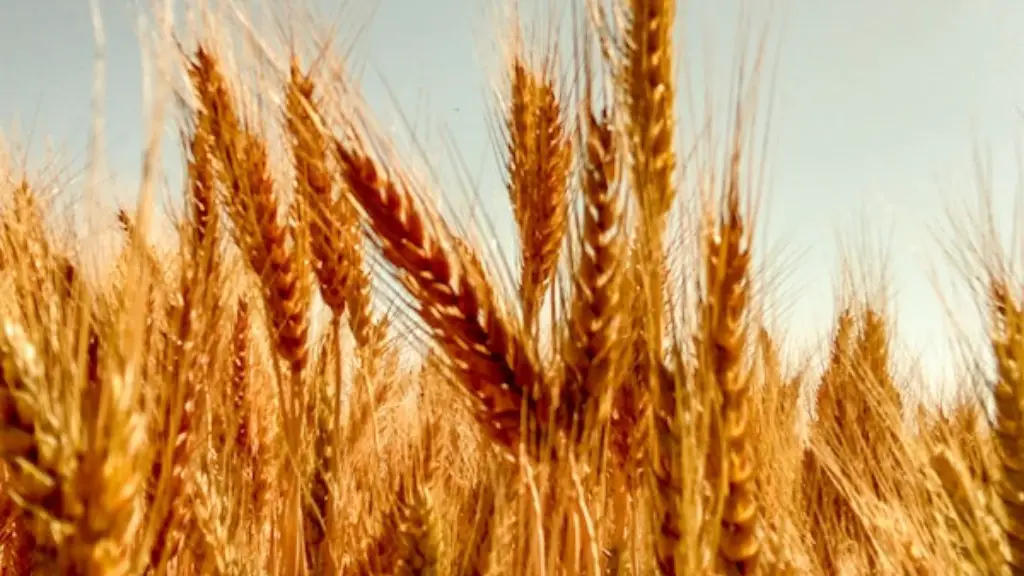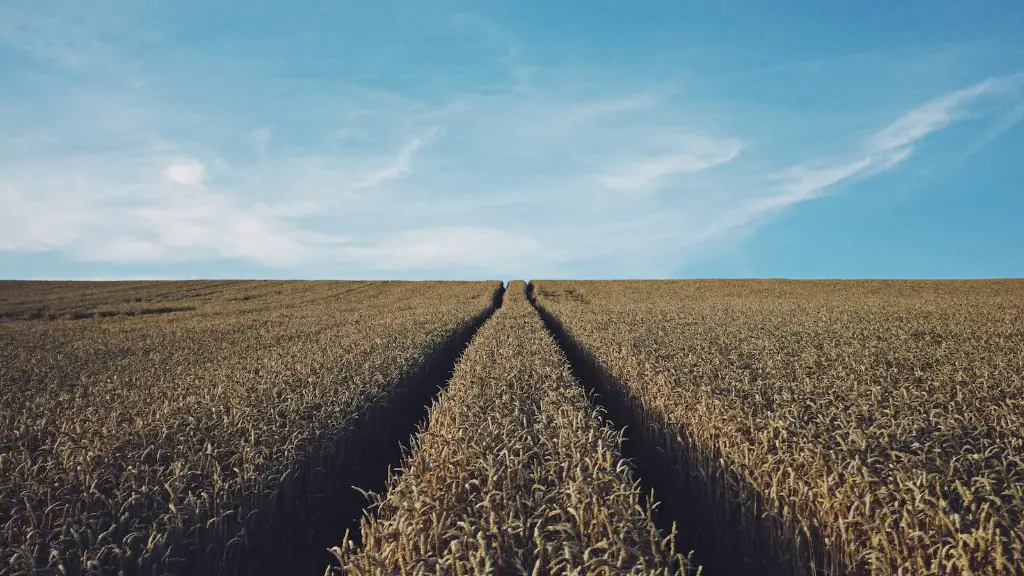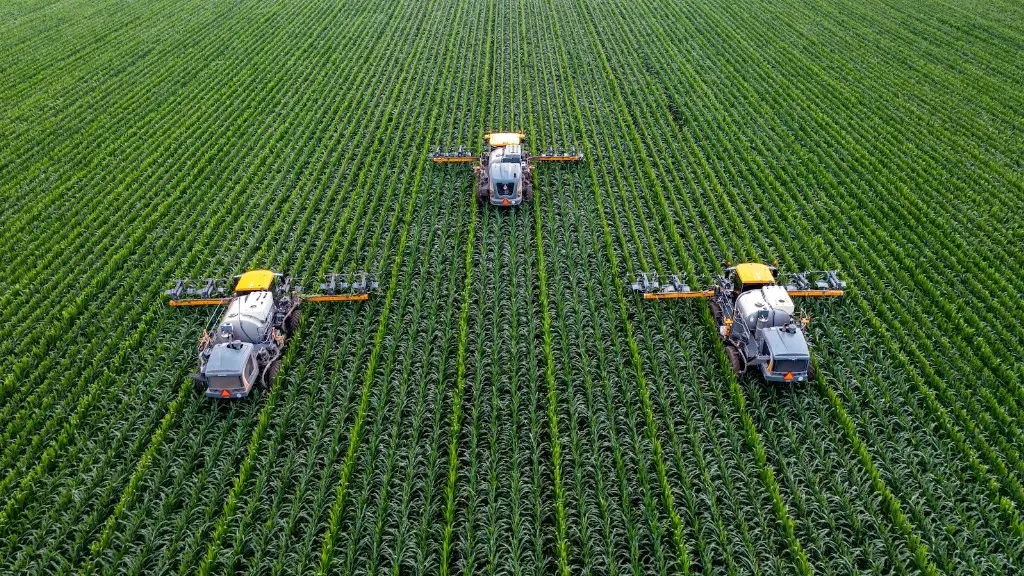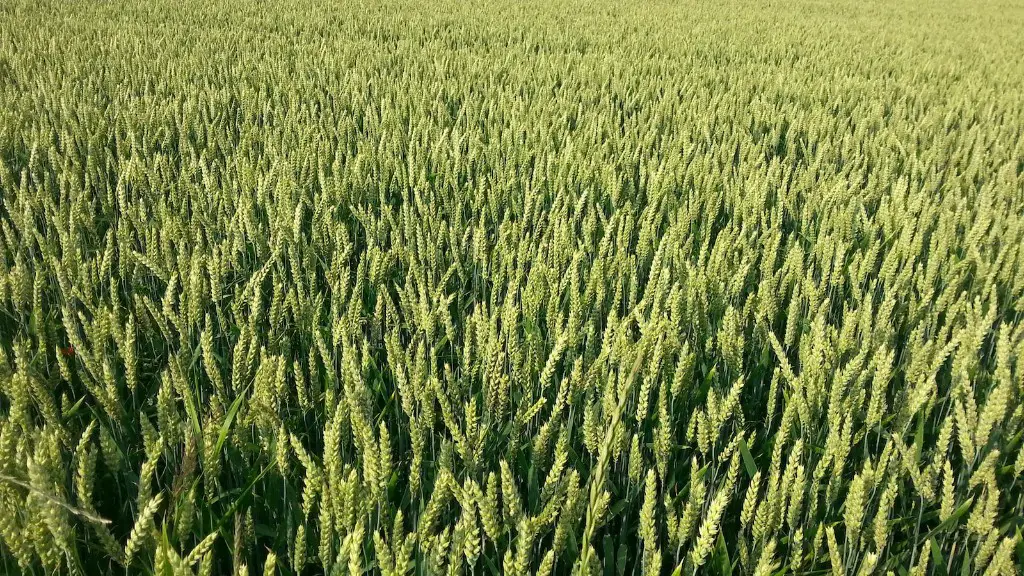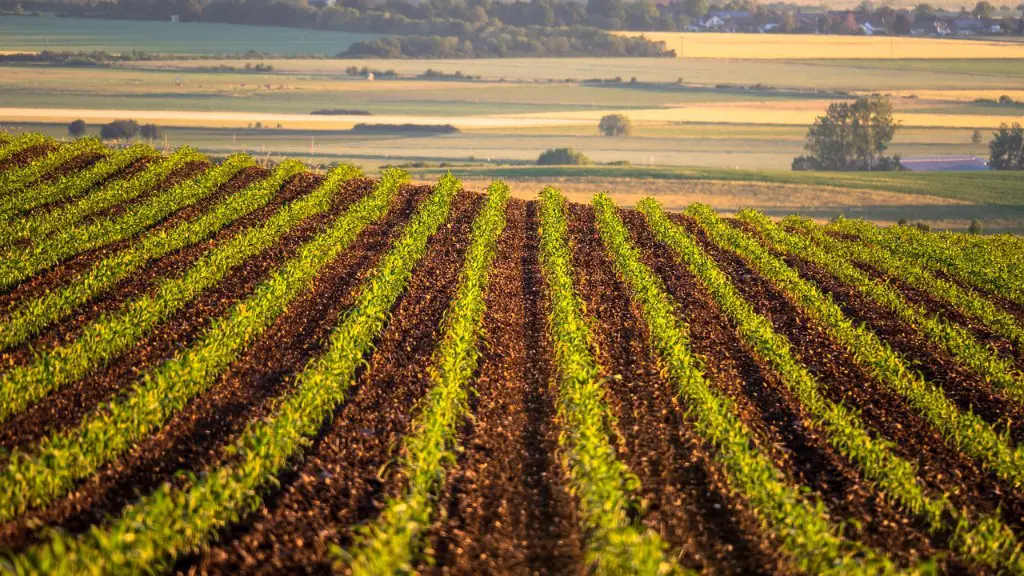Chemistry is essential to agricultural productivity. Fertilizers, pest control, and food processing are among the many applications of chemistry in agriculture.
Agriculture depends on chemistry for many things, including soil fertility, crop protection, and animal husbandry. Fertilizers, pesticides, and herbicides are all chemical products that farmers rely on to produce a healthy crop. In addition, agricultural scientists use chemistry to develop new ways to increase crop yields and to improve the quality of food products.
What chemistry is used in agriculture?
Agricultural chemistry includes the use of chemicals in agriculture. This can be in the form of fertilizers to improve crop yield, or in the form of pesticides and insecticides to prevent external organisms from harming the crops. Agricultural chemicals can also be used for weed control, and for plant growth regulation.
Chemistry is a valuable tool for agricultural, environmental and food scientists because it allows them to understand and control the chemical processes that occur in plants and animals. By understanding the chemistry of plant and animal growth, scientists can develop more efficient and sustainable methods of food production.
What does agriculture mean in chemistry
Agricultural chemistry is a relatively new field that is constantly evolving. It is the study of the chemical and biochemical processes that occur in agriculture. Agricultural chemists work to improve the quality of soil, water, and air in agricultural areas. They also work to develop new and improved methods of pest control and crop production.
Chemistry plays an important role in agriculture, from the production of organic products to the use of inorganic inputs. At the molecular level, chemistry is involved in the production of organic compounds, and at the organ level, it is involved in the production of food and other agricultural products. In addition, chemistry is also involved in the development of new agricultural techniques and the improvement of existing ones.
Is agriculture a branch of chemistry?
Agrochemistry is a branch of chemistry that deals with the application of chemistry to agriculture, food processing, and environmental remediation. It is concerned with the use of chemical products and processes to improve the productivity of crops and livestock, to protect crops and animals from pests and diseases, and to clean up environmental pollution.
The above mentioned chemicals help in the production of food, feed and fiber by either killing the pests or by providing the essential nutrients to the plants and animals.
What is the importance of chemistry in agriculture essay?
There are a few things to consider when preparing the soil for crops. First, ensure that the soil is loose and has good drainage. Second, consider adding organic matter to the soil to help with nutrient retention and soil fertility. Third, if using chemically enhanced products, make sure to follow the directions carefully. By taking these steps, farmers can ensure that their crops will grow abundantly.
Analytical chemistry is crucial for agricultural research and development, as it provides the means to generate essential technical data on soil, water, plant and animal material. This data is essential for understanding how these materials interact with each other and how they can be used to improve agricultural productivity.
How chemistry has changed our life in agriculture and healthcare
Chemistry has been effective in the development of pesticides that have reduced pesticide crop damage. Pesticides include fungicides, herbicides, biocides, and insecticides, depending on the pest. The application of these pesticides reduces the pests’ impact on crops by 10%.
Organic chemistry has revolutionized agriculture. It has enabled crops to be produced in areas that are previously unsuitable for agriculture. In addition, organic chemistry has helped to create higher yields to counterbalance the loss of available agricultural land. Consequently, organic chemistry has played a pivotal role in the development of agriculture.
Agricultural chemistry is the study of chemical principles and their applications to agriculture. This includes the study of plants, animals, soil, water, and air for the purpose of improving the quality and productivity of the agricultural system.
Analytical chemistry is the study of the composition, structure, and properties of matter. This includes the use of chemical techniques to determine the identity and concentration of substances in a sample.
Biochemistry is the study of the chemical processes that occur in living organisms. This includes the study of the structure and function of biomolecules, such as proteins, DNA, and enzymes.
Chemical technology is the application of chemical principles to the design and operation of industrial processes. This includes the development of new materials and processes, as well as the optimization of existing ones.
Colloid and surface chemistry is the study of the properties of colloidal systems, such as suspensions, emulsions, and foams. This includes the study of the interactions between particles and surfaces, as well as the application of these principles to the design of new products and processes.
Consulting is the provision of expert advice to businesses and organizations. This includes the analysis of problem areas and the development of recommendations for improvement.
There is a wide range of agricultural degrees available at the baccalaureate level. These include agroecology, food systems, environmental sciences/studies, biological sciences, international development, animal science, nutrition & food sciences, and dietetics, nutrition, and food sciences, among others. All of these degrees offer a strong foundation in the principles of agriculture and can lead to careers in a variety of fields.
What is the effect of chemical in agriculture
Pesticides can be extremely harmful to the environment. They can contaminate soil, water, turf, and other vegetation. In addition to killing insects or weeds, pesticides can be toxic to a host of other organisms including birds, fish, beneficial insects, and non-target plants. Pesticides can also contaminate food and water supplies, and can be harmful to humans if ingested. It is important to use pesticides carefully and only when necessary. When using pesticides, always follow the directions on the label and take precautions to avoid exposing yourself or others to these harmful chemicals.
Chemistry is food’s best friend. It’s responsible for bringing out the best qualities in food, from taste and texture to nutrition and shelf life. It’s also responsible for making sure food is safe to eat, by testing for things like pesticides and food additives. And of course, the art of cooking is itself a chemical process, transforming the qualities of ingredients and how they combine to form new textures and tastes. So next time you sit down to a delicious meal, be sure to thank chemistry for making it possible!
What are the 4 major fields of chemistry?
Chemistry is the study of the composition, behavior, and properties of matter. It is traditionally divided into five major subdisciplines: organic chemistry, biochemistry, inorganic chemistry, analytical chemistry, and physical chemistry.
Chemical reactions are all around us and there are many ways to explore them! Below are some fun activities to try out at home or in the classroom.
1. Elephant Toothpaste: This classic chemical reaction is always a hit! All you need is some hydrogen peroxide, dish soap, and food coloring. Check out this video for a step-by-step guide.
2. Lava Lamp: Who doesn’t love a lava lamp? You can easily make your own with just a few household ingredients. Check out this recipe.
3. Lemon Volcano: This is a great activity for kids to learn about acid-base reactions. You’ll need a lemon, baking soda, and vinegar. Check out this video for instructions.
4. Invisible Ink: Making your own invisible ink is a great way to learn about chemical reactions. All you need is lemon juice and some paper. Check out this video to see how it’s done.
5. Bath Bombs: This is a fun activity to do with kids or adults! You’ll need some baking soda, citric acid, food coloring, and essential oils. Check out this recipe.
6. Exploring Enzymes
What are 5 uses of chemistry
Chemistry has always been an integral part of human civilization. Right from the days of the early man, chemistry has played a significant role in the development of various industries. These industries include glass, cement, paper, textile, leather, dye, etc. Today, chemistry has a huge impact on industries like paints, pigments, petroleum, sugar, plastics, pharmaceuticals, etc. In fact, it would be safe to say that without chemistry, the industrial world would come to a standstill.
Agriculture is constantly evolving to meet the ever-changing needs of humanity. New ways of producing food and fiber are constantly being developed, thanks to the scientific advances in the field of agriculture.
The science of agriculture comprises four major areas of study: life sciences, physical sciences, biotechnology, and consumer science. Each of these areas offers valuable insights into the complex process of food production.
Life sciences help us understand the plants and animals that are used in agriculture. Physical sciences help us understand the land and the environment in which agriculture takes place. Biotechnology helps us develop new and improved ways of producing food. And consumer science helps us understand the needs and wants of the people who will be consuming the food that we produce.
By working together, scientists in all of these disciplines can help create a more efficient and sustainable food system that can meet the needs of our growing population.
Warp Up
Agriculture and chemistry are related in a few ways. First, chemistry is used to develop products that help farmers be more efficient and productive, such as better fertilizers and pesticides. Second, chemical processes are used to convert raw agricultural products into food and other useful items. Finally, chemistry is used to study the soil and plant life to help improve agricultural methods.
The relationship between agriculture and chemistry is a long and complicated one. Agriculture relies on chemistry for many things, from the creation of fertilizers and pesticides to the study of plants and soil. Chemistry, in turn, helps farmers to understand how best to grow their crops and how to protect them from pests and diseases.
